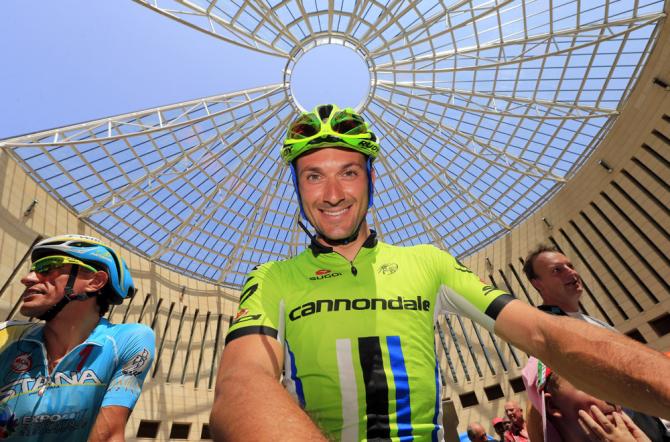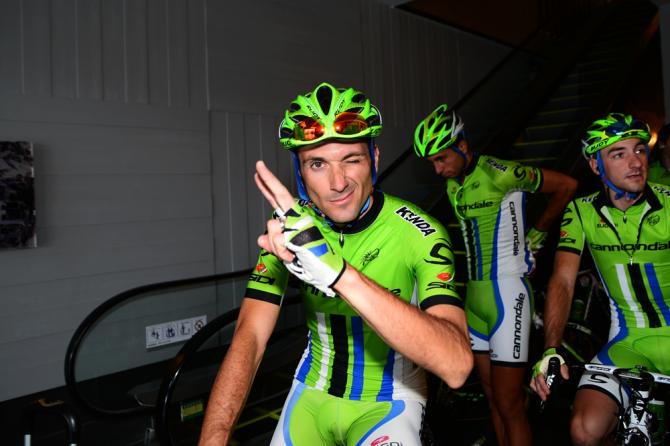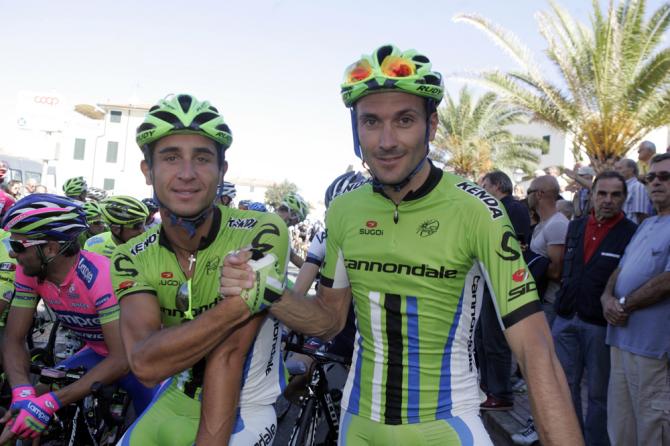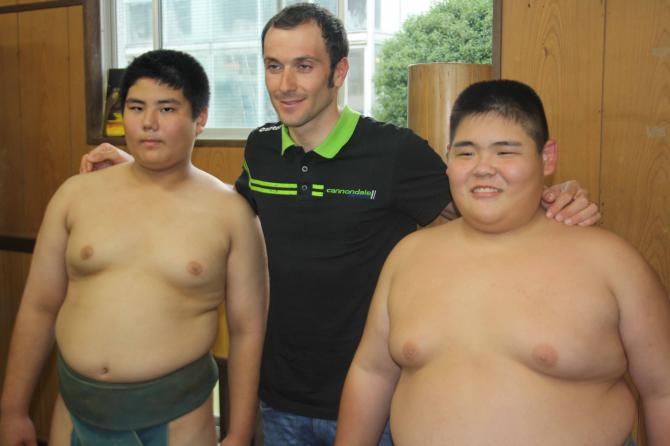Basso on doping redemption and 2014 plans
Every comeback is different, says Italian




Within minutes of Mauro Santambrogio’s apparent online suicide threat last month, social networking site Twitter was flooded with messages of support and sympathy for the Italian rider. Yet some of those who empathised with Santambrogio on that dark night had seemed almost in competition to be his most outspoken critic the last time his name trended, in early June, when it emerged that he had tested positive for EPO at the Giro d’Italia.
It was a stark illustration of how swings in public opinion can be both amplified and accelerated in the internet age. It also raised the issue of whether, given the understandable opprobrium heaped upon riders like Santambrogio, the already under-funded anti-doping system should provide counselling to riders in tandem with their punishment.
Ivan Basso is well-placed to comment on the nature of public reaction to doped riders. In 2007, after his belated – though not altogether satisfactory – admission to having his blood withdrawn and stored in a Madrid freezer by Dr. Eufemiano Fuentes, Basso was among the first riders to be sanctioned formally for his implication in Operacion Puerto.
Though reluctant to discuss the specifics of Santambrogio’s case – “I only speak for myself,” he stressed repeatedly – Basso maintains that rather than seeking outside help or hoping for a more benign public response, a banned rider must first and foremost rely on the support of those closest to him.
“Everybody has his own story. I believe that the other riders who’ve had problems, they all have a wife, a family, children, friends. They’re the first people who should help them. It’s not up to colleagues or journalists to help them out – the first people they should turn to are the people closest to them, the people who really know and love them,” Basso told Cyclingnews.
“When I made a mistake, I stayed with my family and I sat out my suspension, I did my time. Then when you come back, you have to come back with dignity and show the people that what you’ve done was an ugly parenthesis in your life but this is the new reality and you won’t betray their trust again.”
Basso’s choice of words may rankle with some – his 2011 autobiography, Climbing Against the Wind, also speaks vaguely of “mistakes” and “problems” – but within an influential sector of Italian cycling at least, he is viewed as having atoned for his misdemeanours, fresh evidence from this year’s Puerto hearing notwithstanding.
The latest race content, interviews, features, reviews and expert buying guides, direct to your inbox!
The road back
In the Divine Comedy, Dante imagines Purgatory as a mountain jutting up from the sea, composed of seven terraces. When the poet arrives at the base of the mountain, the letter “P” (for “peccato” – sin) is marked seven times on his forehead, representing the seven capital sins. Each time Dante ascends a level en route to purification, a P fades from his forehead.
Within the cosmos of professional cycling, so to speak, Basso’s ascent from his ban to the terrestrial paradise of a new contract in the top flight was a remarkably smooth one, in contrast to the likes of Davide Rebellin and Stefan Schumacher, who lumbered at Pro Continental level with their scarlet letters still prominently in place long after returning from suspension.
Liquigas broke with teams’ association AIGCP in order to sign him in 2008, while in general terms, the Italian media was relatively kind in its coverage of Basso’s return, but he bristles at the idea that he was somehow protected or a recipient of favourable treatment in comparison to others who erred.
“The rules are the same for everyone, but the comeback – whether you sign for a team or not – that’s not a rule. That’s a choice for the team, who can choose to sign you or not, the same way that a newspaper can choose to hire a journalist or not,” Basso said.
“When you return, you have give something to the public – you have to show that you understand that you made a mistake and then you need to win races because if not, people won’t pay you much credibility. I don’t think it’s fair to say that not all riders are treated the same after their suspensions.”
Basso offers his collaboration with the late Dr. Aldo Sassi at the Mapei Centre and his publishing of blood values as examples of his credibility, but that point is perhaps undermined when one considers some of the riders who cynically followed a similar template.
Riccardo Riccò, for instance, had a photo opportunity at the Mapei Centre just weeks before he suffered kidney failure after a home-performed blood transfusion, while Danilo Di Luca signed a contract on his return from suspension in 2011 flanked by a priest and in front of 500 schoolchildren because, he said, of his desire for youngsters to learn from his mistakes. Di Luca, of course, tested positive for EPO on the eve of this year’s Giro.
“I don’t care a thing about what others do. I didn’t even know that Di Luca had signed his contract with a priest in front of schoolchildren because it’s something that doesn’t even interest me. I just focus on myself,” Basso said.
“I have to show honesty, I have to try to win races, to respond to questions, to show blood data, and respond to any situation, but I don’t need to concern myself with what every Tom, Dick and Harry is doing.”
2014
As Cannondale’s talks with Oleg Tinkov stalled in the closing weeks of the season, there was some speculation that Basso might switch to ride in the service of his former teammate Vincenzo Nibali at Astana, but the veteran was keen to dispel such rumours and clarify their source.
“During the Vuelta, I said that if I could ever imagine myself working for another rider, then it would be Vincenzo. But that was a suggestion, a sort of ‘fantasy cycling’ and certainly not something that was necessarily a reality because I’ve raced for this team for many years,” Basso said. “This team has a lot of faith in me and I still feel like I can be the leader of this team. There has never been any desire on my part to leave.”
After a perineal cyst ruled him out of the Giro d’Italia on the eve of the race, Basso returned to some form at the Vuelta a España only to abandon in the Pyrenees due to effect of hypothermia. Basso is hoping for better in 2014, and plans to tackle two Grand Tours – “I don’t know which ones yet” – but acknowledged that overall victory might well be beyond him.
“In all honesty, if the strongest guys in the world, like Froome and Nibali, are all there on the start line at a Grand Tour, then I’m not on the same level. I can fight for a place in the top 5 but not for the overall win. But when they’re not all there, I can still be up there with the best. And the beauty of cycling is that it’s not mathematical: if you’re up there with the best at all, then you have a good chance to seize the moment.”
That said, and although he turns 36 years old next week, Basso was reluctant to draw on Chris Horner’s improbable Vuelta victory for inspiration. “Horner won at 42 years of age? Good for him, he’s crowned his career. But just because he’s won at 42 years of age doesn’t mean that we’ll all go on that long.”

Barry Ryan was Head of Features at Cyclingnews. He has covered professional cycling since 2010, reporting from the Tour de France, Giro d’Italia and events from Argentina to Japan. His writing has appeared in The Independent, Procycling and Cycling Plus. He is the author of The Ascent: Sean Kelly, Stephen Roche and the Rise of Irish Cycling’s Golden Generation, published by Gill Books.